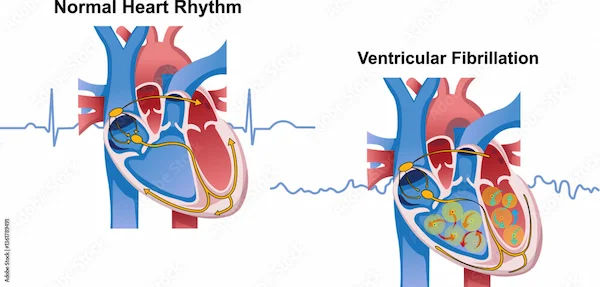Heart Healthy Diet Plans: Diet Plans For A Stronger And Healthier Heart!
Explore heart-healthy diet plans with nutrient-rich foods to reduce cholesterol, lower blood pressure, and promote overall heart health. Start nourishing your heart with the right foods for a healthier life.

Written by Dr Sonia Bhatt
Last updated on 3rd Jul, 2025
Cardiovascular diseases are the leading cause of death globally, claiming millions of lives every year. However a balanced, heart-healthy diet plays a crucial role in reducing risk factors such as high cholesterol, high blood pressure, and obesity, which are major contributors to heart disease. In this blog, we will take a closer look at these heart-friendly diets, exploring their key components, benefits, and how they can help you maintain a healthy heart.
Understanding Heart Healthy Diets
A heart-healthy diet is an eating plan focused on nourishing the heart and supporting cardiovascular health. It emphasises nutrient-rich foods such as fresh vegetables and fruits, whole grains, lean poultry, and oily fish like salmon and tuna, which are excellent sources of heart-protective omega-3 fatty acids. The core principles of such a diet include consuming foods that are:
Low in salt: Helps in controlling blood pressure
Low in cholesterol and saturated fats: Reduces the risk of artery blockages
Rich in fruits, vegetables, and whole grains: Provides essential nutrients and antioxidants
High in healthy fats: Sources like nuts, seeds, and olive oil promote good heart health
Balanced in protein: Lean meats, fish, legumes, and plant-based proteins are emphasised
Components of a Heart Healthy Diet
The main components of a heart healthy diet consist of the following:
1. Whole Grains: Choosing whole grains over refined grains can significantly reduce the risk of cardiovascular disease. Whole grains are richer in beneficial fibre, which supports heart health. Some examples of whole grains are whole-grain bread, whole-grain pasta, oats, and brown rice.
2. Fruits and Vegetables: Fruits and vegetables are excellent sources of fibre and antioxidants, which are crucial for maintaining heart health. It’s beneficial to focus on non-starchy vegetables while moderating portions of starchy options like potatoes and squash. Some heart-healthy fruits and vegetables to incorporate in your meals are apples, blueberries, broccoli, oranges, peppers, tomatoes, spinach and other leafy greens
3. Lean Proteins and Healthy Fats: Choosing lean proteins and healthy fats helps reduce the intake of saturated fats, which can lower the risk of heart disease. Opt for low-fat dairy like skim milk and nonfat yogurt, and lean meats such as skinless poultry and 90-95% lean ground meats. These choices support heart health by keeping cholesterol levels in check and promoting overall cardiovascular function.
Popular Heart Healthy Diet Plans
Adopting a heart-healthy diet is crucial for maintaining optimal cardiovascular health and reducing the risk of heart disease. Here are some popular diet plans that focus on nourishing your heart effectively.
1. The Mediterranean Diet
The Mediterranean Diet is a way of eating that emphasises plant-based foods and healthy fats.
Inspired by Mediterranean tradition: Reflects the eating habits of countries like Greece and Southern Italy.
Rich in plant-based foods: Emphasises vegetables, fruits, whole grains, and legumes, which provide essential nutrients and fibre.
Healthy fats from olive oil: Olive oil, a key component, provides monounsaturated fats that support heart health.
Fatty fish for omega-3s: Incorporates fatty fish like salmon and mackerel, which are rich in omega-3 fatty acids, beneficial for reducing inflammation and supporting cardiovascular function.
Moderate intake of dairy, poultry, and eggs: These are included in small, balanced portions, contributing protein without excessive saturated fat.
Red meat in moderation: Consumed rarely, limiting its impact on cholesterol and heart health.
2. The DASH Diet (Dietary Approaches to Stop Hypertension)
The DASH (Dietary Approaches to Stop Hypertension) diet was specifically designed to prevent and treat hypertension (high blood pressure), which in turn helps reduce the risk of heart disease.
Targeted for hypertension management: Focuses on foods that are rich in potassium, calcium, and magnesium to help regulate blood pressure.
Rich in heart-healthy foods: Includes vegetables, fruits, whole grains, and low-fat dairy while limiting sodium to 1,500–2,300 mg daily.
Incorporates lean proteins: Features lean proteins like poultry, fish, and beans to support heart health without excess fat.
Promotes healthier blood pressure levels: Helps lower blood pressure and LDL cholesterol by reducing processed foods, saturated fats, and sodium intake.
3. The Ornish Diet
Designed to reverse heart disease: Developed by Dr. Dean Ornish, the diet aims to help individuals reverse heart disease through strict dietary changes.
Strict fat limitation: Less than 10% of daily calories should come from fat.
Cholesterol restriction: Limits cholesterol intake to less than 10 milligrams per day.
Plant-based focus: Relies primarily on plant-based protein sources, such as legumes, fruits, vegetables, and whole grains.
Includes heart-healthy foods: Incorporates non-fat dairy, tofu, soy-based foods, egg whites, and green tea.
Low-fat, cholesterol-free approach: Emphasises foods low in fat and cholesterol to support heart health and potentially reverse heart disease when followed consistently.
Foods to Eat
These are the following foods that can be incorporated into a heart healthy diet:
1. Omega-3 Rich Foods
Omega-3 fatty acids are essential for heart health, as they help reduce inflammation, lower blood pressure, and support overall cardiovascular function. Foods rich in omega-3s include:
Fatty fish such as salmon, mackerel, sardines, and tuna
Chia seeds
Flaxseeds
Walnuts
Hemp seeds
2. Antioxidant-Rich Foods
Antioxidants play a key role in protecting the heart by neutralising harmful free radicals and reducing oxidative stress. Foods high in antioxidants include:
Berries (blueberries, strawberries, raspberries)
Dark chocolate (70% cocoa or higher)
Green leafy vegetables (spinach, kale)
Tomatoes
Nuts and seeds (almonds, sunflower seeds)
3. Fiber-Rich Foods
A diet high in fibre supports heart health by helping lower cholesterol levels and improving digestion. Fibre-rich foods include:
Whole grains (oats, brown rice, quinoa)
Legumes (lentils, beans, chickpeas)
Fruits (apples, pears, berries)
Vegetables (broccoli, carrots, Brussels sprouts)
Nuts and seeds (chia seeds, flaxseeds)
Foods to Avoid or Limit
Foods that should be avoided in a heart healthy diet are as follows:
1. Saturated and Trans Fats
Saturated and trans fats can raise bad cholesterol levels, increasing the risk of heart disease. These fats are commonly found in:
Fatty cuts of meat
Processed meats (bacon, sausages, hot dogs)
Full-fat dairy products (butter, cheese, cream)
Fried and fast foods
Baked goods made with hydrogenated oils (pastries, cakes, cookies)
2. Excess Sodium
Excess sodium can contribute to high blood pressure, a major risk factor for heart disease. Foods high in sodium include:
Processed and packaged foods (canned soups, frozen dinners)
Salty snacks (chips, pretzels, popcorn)
Fast food and restaurant meals
Packaged condiments (soy sauce, salad dressings)
Processed cheeses and deli meats
3. Added Sugars and Refined Carbohydrates
Added sugars and refined carbs can lead to weight gain, insulin resistance, and increased risk of heart disease. These are commonly found in:
Sugary drinks (sodas, sweetened teas)
Sweets and desserts (cakes, candies, cookies)
Refined grains (white bread, pasta, rice)
Packaged snacks (granola bars, chips)
Breakfast cereals with added sugars
Tips for Maintaining a Heart Healthy Diet
1. Opt for Healthy Fats: Choose heart-friendly fats, such as those found in olive oil, avocado, nuts, and fatty fish. These fats help support cardiovascular health and lower bad cholesterol levels.
2. Avoid Replacing Fat with Sugar or Refined Carbs: While cutting fat may seem like a healthy choice, it’s important not to replace it with sugar or refined carbohydrates. These can increase the risk of heart disease and raise blood sugar levels.
3. Prioritise High-Fiber Foods: Incorporate more fiber-rich foods like whole grains, legumes, fruits, and vegetables. Fiber helps lower cholesterol, regulate blood sugar, and promote healthy digestion.
4. Limit Salt and Processed Foods: Cut back on salt and avoid processed foods, which are often high in sodium and unhealthy fats.
5. Practise Home Cooking: Preparing meals at home allows you to control ingredients and portion sizes, helping you make healthier choices and avoid the hidden fats, sugars, and sodium found in many packaged foods.
6. Control Portion Sizes and Weight: Eating the right portion sizes can help maintain a healthy weight, which in turn reduces the risk of heart disease.
Conclusion
Adopting a heart-healthy diet is one of the most powerful steps you can take to reduce the risk of cardiovascular diseases, which remain the leading cause of death worldwide. By prioritising whole, nutrient-dense foods like whole grains, fruits, vegetables, lean proteins, and healthy fats, while limiting processed foods, excess salt, and unhealthy fats, you can significantly improve your heart health. Following well-established diets like the Mediterranean, DASH, or Ornish helps to nourish your heart and body. Incorporating these dietary changes, alongside regular physical activity and a balanced lifestyle, can help you live a longer, healthier life.
Consult Top Dietician
Consult Top Dietician

Ms. Priyanka Saini
Dietician
9 Years • Msc (Food & Nutrition),NDEP
Ghaziabad
Dr. PRIYANKA SAINI'S CLINIC, Ghaziabad

Ms. Soma Saha
clinical nutrition
17 Years • B.Sc. - Home Science (Food & Nutrition), M.Sc. - Home Science (Food & Nutrition)
Kolkata
Dr Utsa Basu Clinic, Kolkata
(25+ Patients)

Ms Silky Mahajan
Dietician
16 Years • B.Sc. - Home Science (Food & Nutrition), M.Sc. - Home Science (Food & Nutrition)
Bengaluru
Foods and Nutrition Clinic, JP Nagar, Bengaluru

Ms. Sreeparna Dey Dhara Deb
Dietician
8 Years • Master of science and dietetics
Bansdroni
Siddhita Healthcare., Bansdroni

Dt Silky Mahajan
Dietician
16 Years • B.Sc. - Home Science (Food & Nutrition), M.Sc. - Home Science (Food & Nutrition)
Bengaluru
Foods and Nutrition Clinic, Whitefield, Bengaluru


